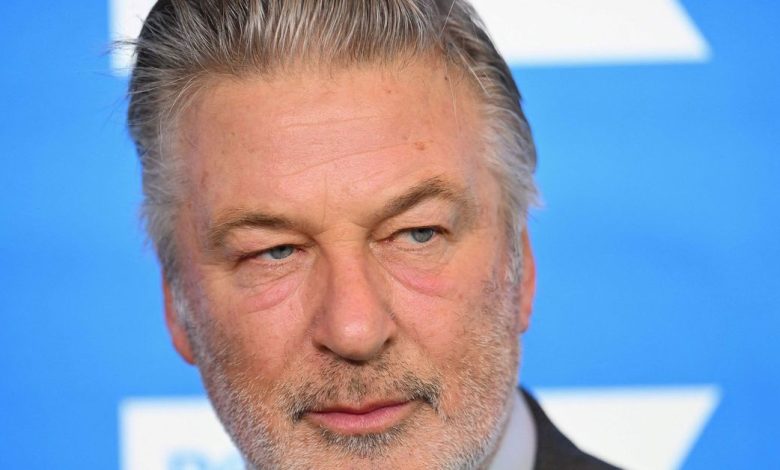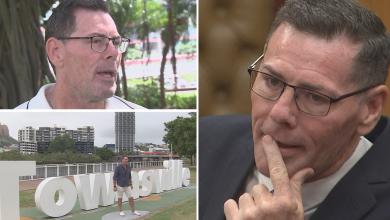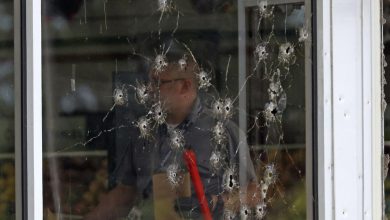Alec Baldwin Judge considers dismissing indictment against Alec Baldwin in shooting

[ad_1]
A New Mexico judge considers Alec Baldwin’s request to dismiss the indictment against him in a virtual court hearing Friday.
An indictment in January charged Baldwin with manslaughter in the Oct. 21, 2021, fatal shooting of cameraman Halina Hutchins at a film ranch outside Santa Fe.
Baldwin, lead actor and co-producer of the western Rustpleaded not guilty to the charge and his lawyers pressed for dismissal.

They claim prosecutors ignored jury rules to divert attention from exculpatory evidence and witnesses.
The manslaughter charge carries a maximum sentence of a year and a half in prison.
During a rehearsal, Baldwin points a gun at cinematographer Halina Hutchins when the revolver goes off, killing Hutchins and injuring Joel Souza, the director.
Baldwin claims he pulled the gun’s trigger, but not the trigger.
Baldwin’s motion to dismiss the indictment also claims the grand jury received inaccurate and biased testimony about the revolver involved in the fatal shooting.
Special prosecutors said they followed grand jury protocols and accused Baldwin of “brazen” attempts to evade blame, highlighting inconsistencies in his statements to law enforcement, to workplace safety regulators and in a television interview.
The trial is scheduled for July.
Prosecutors turned their full attention to Baldwin after a judge in April sentenced film gun boss Hannah Gutierrez-Reid to a maximum of 1.5 years in state prison on a manslaughter conviction for Hutchins’ death.

Last year, prosecutors dropped an earlier manslaughter charge against Baldwin after they were told the gun he was holding may have been modified before the shooting and was defective.
A new analysis of the weapon last year allowed prosecutors to reopen the case.
The indictment against Baldwin offers two possible standards for prosecutors to follow.
One will be based on negligent use of a firearm.
An alternative is to prove beyond a reasonable doubt that Baldwin caused Hutchins’ death without “due caution” or “prudence,” also defined as “an act done with complete disregard or indifference to the safety of others.”
Defense attorneys also say prosecutors misled the grand jury from the testimony of witnesses, including the film’s director, as well as assistant director and safety coordinator Dave Halls and props maker Sarah Zachry.

Last year, Halls pleaded no contest to negligent handling of a firearm and served a six-month unsupervised probation sentence.
Gutierrez-Reid’s two-week trial has given Baldwin’s lawyers and the public an unusual window into how the actor’s trial itself might play out.
Baldwin figures prominently in the testimony and closing arguments, which underscore his authority as co-producer and lead actor in Rust.
Both the prosecution and the defense in Gutierrez-Reed’s trial analyzed video footage of Baldwin before the fatal shooting for evidence of firearm safety failures.
Prosecutors said Gutierrez-Reed unknowingly brought live ammunition onto the set Rustwhere it was expressly prohibited and did not follow basic gun safety protocols.
Gutierrez-Reid is appealing the verdict, handed down by a jury in March, to a higher court, but has yet to present detailed arguments.

At sentencing, Gutierrez-Reid told the judge she tried to do her best on set despite not having “adequate time, resources and staff.”
After filming in New Mexico, the filming of Rust resumed, but in Montana, under an agreement with Hutchins’ husband, Matthew Hutchins, making him an executive producer.
A civil wrongful-death lawsuit by Matthew Hutchins and Hutchins’ son was settled under undisclosed terms.
Defense attorneys say Baldwin was offered a deal last year to plead guilty to a “petty misdemeanor” before a grand jury was convened, but the offer was “inexplicably withdrawn” before the deadline to respond.
[ad_2]





